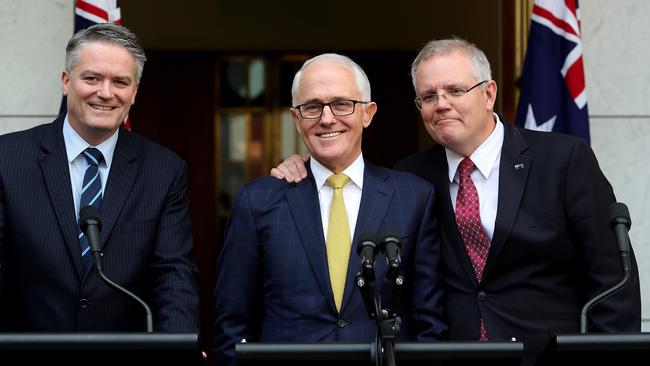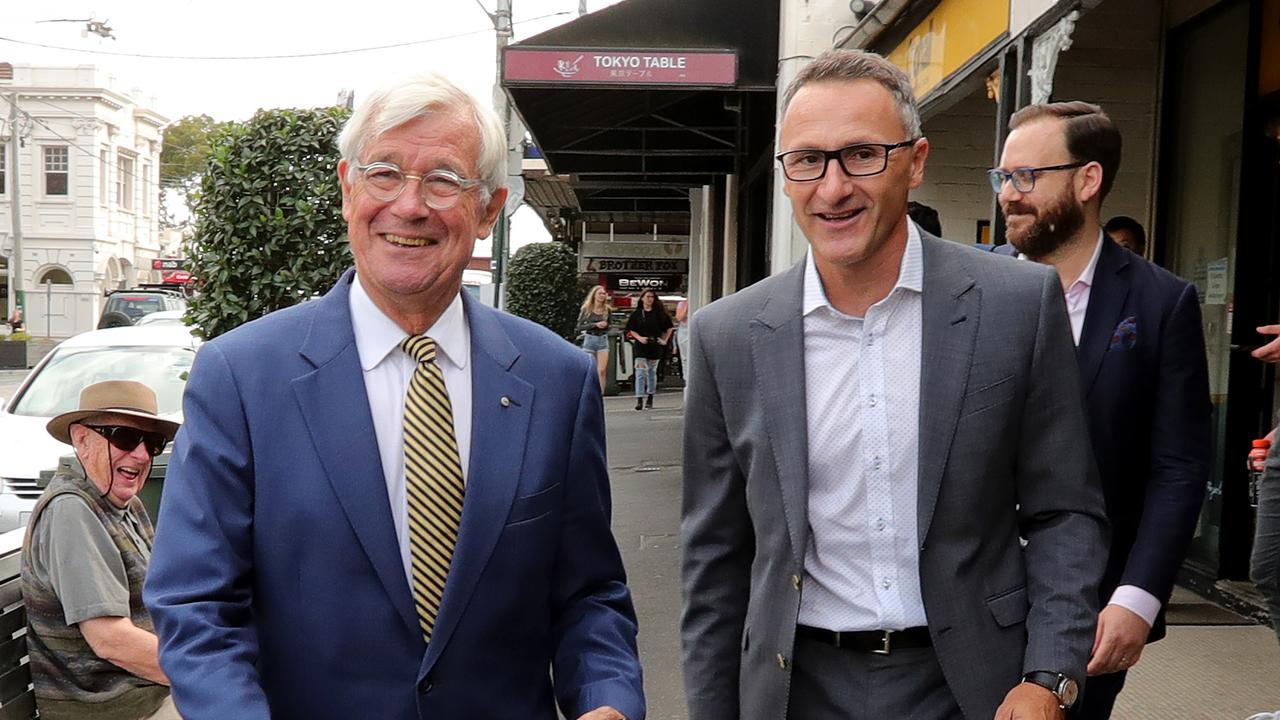
Malcolm Turnbull was the last baby boomer prime minister of Australia. The past decade of national politics has had all the drama, instability and futile rage of a midlife crisis. Traditionalists acquired mistresses or pined for bygone eras while progressives spurned the midlife crisis for midlife causes. Gay marriage was the hot favourite last season but gender-bending in any direction made ageing politicians feel young again. The ascension of Scott Morrison marks a generational shift from baby boomers to generation X. The X men have command of government.
The Pew Research Centre has described the generation born between 1965 and 1980 as a “neglected middle child”. Before the ink was dry on his oath of allegiance, Morrison had been cast as peacemaker between warring Liberal brothers. He is the compromise candidate, the middle road, the third way. He is a counterintuitive mix of evangelical Christian and globalist who was Liberal left powerbroker Michael Photios’s pick for post-coup PM. The markets love him, the hard Left hates him and the media is confused.
Morrison appeared to be in a state of shock after winning the leadership while a flush-faced Josh Frydenberg fought back tears. They stumbled through the press conference like a couple of novice monks leading their first service. The quality of optimism has risen from the long night of internecine warfare that nearly broke Australia’s two-party political system.
Morrison must rebuild the broad church of the Liberal Party, but he faces the more daunting prospect of returning the democratic deficit to surplus before the next election. All signs point to a new political order in the Coalition: the people before the party. Morrison is fashioning himself as a grassroots democrat in the liberal tradition. His first tweet as prime minister was: “We’re on your side.”
Hours after the leadership spill, then Social Services Minister Dan Tehan appeared on ABC TV’s 7.30. Host Leigh Sales demanded to know why Turnbull had to go. Tehan replied that Liberals wanted “a new generation of leaders who can focus on the Australian people”. The implicit admission is that since the Liberal Left rolled Abbott during his first term as prime minister, the people have come a distant second to party politicking.
Morrison has the advantage of being a social conservative and economic liberal in a party ripped apart by rival Left and Right factions. He has a track record for designing conservative policies to protect sovereign borders, promote national security and support private enterprise through tax reform. He isn’t afraid to promote compassionate conservatism, especially in respect of health. As social services minister, he led the implementation of the National Disability Insurance Scheme that had been legislated with inadequate funding by the Labor Party.
In the time-honoured tradition of gen X, Morrison seems unfazed about upsetting the establishment when it matters. He supported traditional marriage despite Left populist campaigns to smear dissenters. He refuses to go into the closet about his faith in Christ and speaks up for Christians at risk of persecution, such as rugby player Israel Folau. As a result, conservatives hope he will lead the nation to a deeper understanding of religious freedom as a foundational value of Australian democracy.
It is an area that former PM Malcolm Turnbull neglected by omitting the substantive protections for religious freedom promised by the Liberal Left before the vote on gay marriage. The Ruddock review into religious freedom that Turnbull commissioned has not been released.
There is no question about Morrison and Frydenberg’s faith in God but there are questions about their respective policy records. When Labor finally woke up to the Morrison threat, it switched from smearing Peter Dutton to targeting the PM-elect. Tanya Plibersek started a rapid-fire assault on Twitter to paint Morrison a darker shade of Turnbull: he wanted to give $80 billion to the banks and opposed the banking royal commission. He wants to cut $17bn from schools and give $17bn to the big banks and multinationals. By contrast, Frydenberg has been handled with kid gloves. Many of his detractors are fiscal conservatives who think his commitment to the Paris emissions target threatens Australia’s economic sovereignty.
If the past is a reliable guide to the future, the new Liberal leadership is unlikely to return the party to small-government classical liberalism — although a parched backbench might be persuaded to believe that Frydenberg’s weekend photo op with former treasurer Peter Costello is more than a mirage. One can dream.
In June last year, I wrote that Morrison was preparing a tilt at the Liberal leadership: “Subtle jostling for the PM’s chair is under way … Scott Morrison is campaigning as authentic (but) as Treasurer of a party philosophically aligned to classical liberalism, he has rubber-stamped big government programs, stimulus policies, a bank levy and a range of measures perceived as punitive to wealth creators. His get-out-of-jail card is printed ‘pragmatic’.”
Despite concerns, the new PM is already working to restore stability and faith in democratic government. He knows the public is so disenchanted that it has elected to disengage from politics. He knows unifying the Coalition is important, but the party must serve the people first. He has made drought relief for Australian farmers the government’s first priority and reducing cost of living expenses a near second. His track record in enforcing border security demonstrates his conservative instincts. And once he adopts a firm position on policy, he takes the fight to Labor in spectacular fashion.
The path to Liberal unity is paved with good intentions, but the weekend showcased the ghouls of wreckers past. Conservatives maintained a dignified silence, but the MPs who destroyed Tony Abbott’s prime ministership in 2015 had the gall to mount a campaign of vitriol against the “conservative rump”. Many wreckers were promoted to Turnbull’s ministry. If the future of the government is unity, the Coalition’s quislings are yesterday’s men.




To join the conversation, please log in. Don't have an account? Register
Join the conversation, you are commenting as Logout